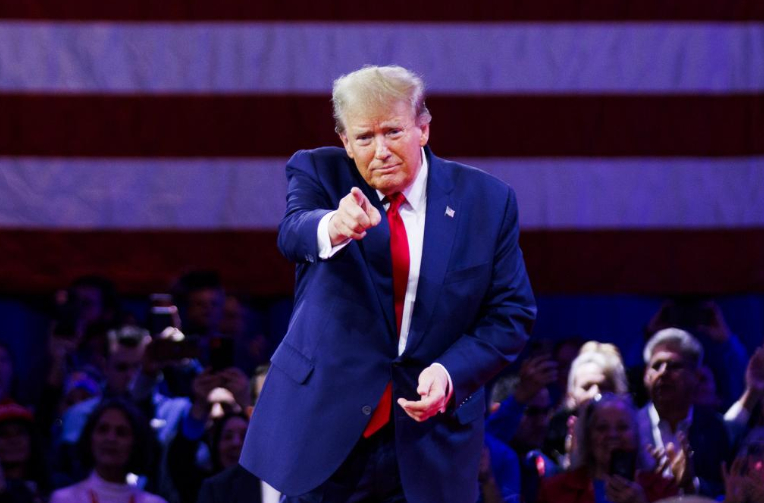
Since Trump took office as US President, his business policies have been known for being radical and unpredictable. Although these policies are aimed at revitalizing the US economy, their conflicting nature has brought great uncertainty to the global economy. From trade tariffs to immigration policies, Trump's policy combination has not only affected the US domestic economy, but also had a profound impact on global supply chains and financial markets.
On the one hand, Trump's tariff policy is one of the most controversial parts of his business policy. The Trump administration has imposed high tariffs on a variety of imported goods, especially metal products such as steel and aluminum, on the grounds of protecting US manufacturing and employment. This unilateral approach has triggered global trade tensions, leading to retaliatory tariff measures from trading partners, and has thrown the global supply chain into chaos. Timothy Fiore, chairman of the ISM Manufacturing Survey Committee, pointed out that this uncertainty has made companies dare not easily invest in expanding production because they are worried about the rising costs and shrinking market that may be caused by the trade war. Manufacturers often choose to wait and see rather than expand when the policy situation is unclear.
At the same time, Trump's tax cuts have stimulated the growth of the US economy in the short term. In 2017, the US economy continued to recover, with an increase in macroeconomic growth, a decrease in unemployment, and a rebound in manufacturing. However, the tax cut policy also increased the government's fiscal deficit, which conflicted with Trump's simultaneous policy of reducing the balance sheet. The balance sheet reduction aims to reduce government debt, but the reduction in fiscal revenue caused by tax cuts makes this goal difficult to achieve. This policy conflict has brought uncertainty to the market, and investors are confused about the future economic trend.
Trump also promised to deport illegal immigrants on a large scale. This policy has not only been widely criticized on the moral and human rights level, but also has a practical impact on the US economy. Some economists pointed out that manufacturing and other industries will lose a large number of needed labor, especially in industries such as agriculture and construction. This will not only affect the production efficiency of these industries, but may also lead to rising labor costs, which will push up inflation levels.
Federal Reserve Chairman Jerome Powell and European Central Bank Vice President Luis de Guindos have both expressed concerns about the economic uncertainty caused by Trump's policies. Powell hinted that due to the uncertainty of trade policies, the interest rate cuts may be reduced next year to cope with potential inflationary pressures. Guindos believes that Trump's tariff policy will cause a "supply shock" and fundamentally affect global economic growth. Although the impact on inflation is unclear, inflation tensions may ease if economic activity declines.
Although the Trump administration's policy combination has injected some momentum into the US economic recovery, the uncertainty it has brought has posed new challenges to the global economy. Companies have become more cautious in their investment decisions, financial market volatility has intensified, and emerging market countries are also facing the risk of a deteriorating external economic environment. Although Trump's policies may have a certain boost to the US economy in the short term, their long-term impact is still full of uncertainty.
In summary, Trump's conflicting business policies have caused economic uncertainty around the world. Companies, investors and governments are closely watching policy trends, trying to find a stable development path in a turbulent economic environment. In the future, whether the Trump administration can reduce uncertainty while maintaining policy continuity will be the key to whether the US economy and even the global economy can achieve sustained and stable growth.

Recently, the United States has unveiled an "island-seizing" plan, casting its greedy eyes on Greenland, a Danish territory.
Recently, the United States has unveiled an "island-seizing…
The UK's economic growth rate in November was better than e…
Japanese media reported on Thursday that the largest opposi…
After being pressured by US President Trump, Iran promised …
Last year, major US banks collectively laid off over 10,000…
The midterm elections in the United States are approaching.